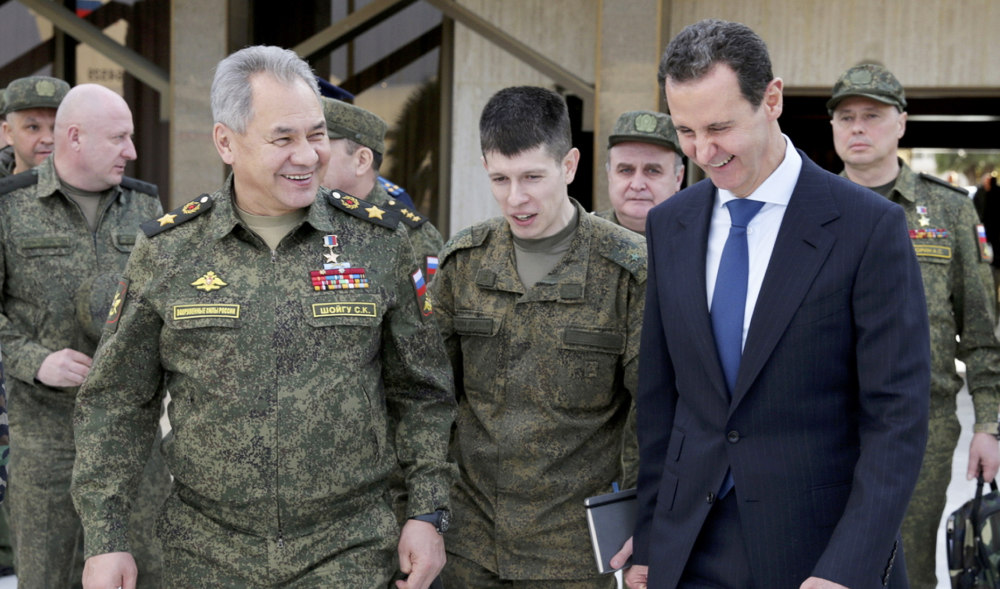Lebanese trust army — not Hezbollah — to secure stability, poll shows
BEIRUT: Eighty-nine percent of respondents in a recent poll said they trusted the Lebanese Armed Forces to ensure the country’s stability, while 80 percent felt the same way about the religious leadership and 75 percent about the judiciary.
In contrast, just 19 percent of those polled — regardless of their religious beliefs — thought political parties could be trusted to ensure stability.
On Hezbollah, opinions were divided. The poll, conducted by Zogby Research Services, found that 48 percent of respondents had confidence in it to secure Lebanon’s stability, while 52 percent did not.
Almost two-thirds of those polled expressed the belief that the “weapons and forces of the resistance should be under the control of the LAF and this includes a majority of respondents in every sectarian community.”
The poll was carried out in September, 10 days after the formation of Najib Mikati’s government. The respondents were adults from various Lebanese regions and sects, and all said they were optimistic about the future despite the current situation being worse than it was five years ago.
A total of 869 people were asked their opinions on the economic crisis in Lebanon, how it has affected citizens and how far they trust state institutions. They also gave their views on Lebanon’s relations with other countries, the political regime and their hopes for the upcoming legislative elections.
Speaking at an event organized by the AUB Issam Fares Institute for Public Policy and International Affairs, also attended by Arab News, James Zogby, who owns the polling company, said: “The developments Lebanon has faced of late led to breaking the existing regime which needs reform, but the ruling political elite does not want to admit that.”
Zogby, who is also the founder and president of the Arab American Institute, said the poll showed that respondents had been seriously affected by shortages of fuel (97 percent), electricity (89 percent) and drinking water (74 percent). More than a third of people reported having to go without food on some occasions, with one in five from poor backgrounds saying they or members of their families had “very often gone without meals because of a lack of money or available food.”
“Almost two-thirds said they don’t have enough income to make ends meet. And when asked to identify the most pressing economic problems facing the country, far and away the two issues they pointed to were the collapse of the lira (Lebanese pound) and corruption. Given this dire situation, almost two-thirds of all respondents said they would emigrate if given the opportunity,” Zogby said.
He added that about 65 percent of respondents thought the “Oct. 17 revolution was beneficial for the country’s stability, while 29 percent said parliament does not ensure stability.”
Seventy-six percent of respondents under the age of 30 were more confident in the revolution ensuring Lebanon’s stability.
When asked whether Lebanon should strengthen or weaken its ties with other countries, only France scored well, with respondents supporting strengthening ties with Paris by a ratio of two to one.
On the US and Iran, a third of people said ties should be strengthened, a third said they should be weakened and a third said they should remain as they were.
Zogby said that respondents, “seemed optimistic of change in the next legislative elections,” with almost 60 percent expressing some confidence that they would “bring the political change Lebanon needs.”
That attitude may be due to the fact that two-thirds of respondents said they would be voting for the “new alternative parties, with this holding true for all demographic groups. Only one in five said they will vote for the traditional parties.”
This rejection extends to the Taif agreement, with almost 60 percent saying Lebanon should dispose of the Taif formula and “adopt a new constitutional model of governance.”
The results of the poll — which Dr. Fadlo Khoury, president of the American University of Beirut, said was based on reliable sources, and which was praised by Dr. Joseph Bahout, director of the Issam Fares Center for Public Policy and International Affairs at AUB — also raised a number of questions.
Dr. Brigitte Khoury, founding director of the clinical psychology training program at AUH, said: “People need food and health security, in addition to security itself. Every day brings new challenges to the Lebanese, which prevents them from planning for the future or from dreaming of a better future.”
She added that after the explosion of the port of Beirut, “people became more desperate and depressed, while the level of tension rose and people lost their power and control, and this is the hardest thing that a human being could face, and it could acquire a violent tendency especially among people who live through shocking events.”
Khoury said that if the “elections do not take place then I fear that people will further lose their power and control especially if there is no justice or a sound judiciary.”
Dr. Jamil Mouawad, a political scientist, expressed his fear that the “institutions which the Lebanese still trust might be a target for the untrustworthy political powers. We see how the judiciary and the military institutions are getting besieged by the politicians.”
He was skeptical about the “possibility of the next parliamentary elections producing promising changes if the parties in power revert to confessional polarization and to using money.”
The Lebanese “should agree on a political plan to get out of the crisis and this is something that is not clear. And the question that needs an answer is what is the political regime that the Lebanese want, and what are we protesting against?”
Mouawad said that “the ones who participated in the Oct. 17 revolution lack experience and should have history lessons to see what has happened.”

Lebanese officials busy themselves with border dispute discussions against backdrop of port blast angerUS Treasury imposes more sanctions on Hezbollah-linked Lebanese individuals



